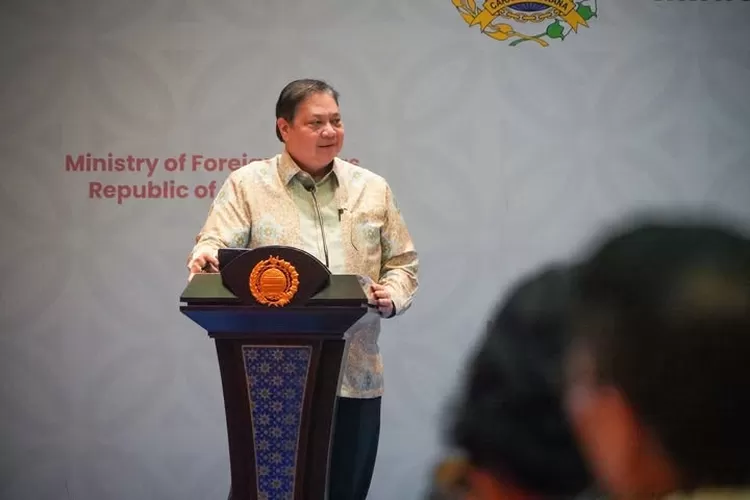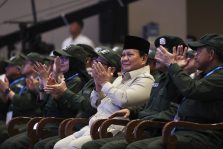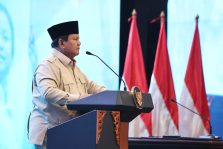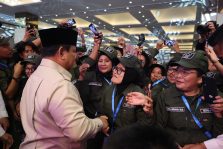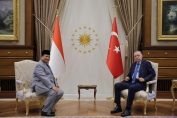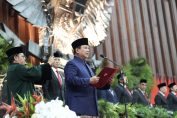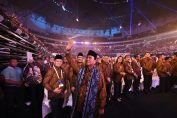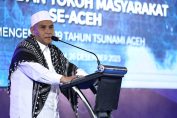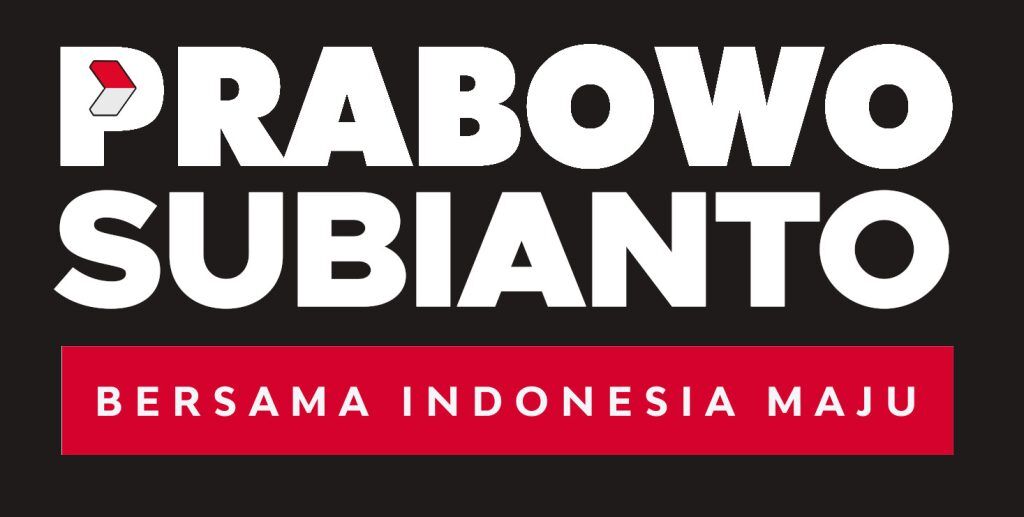Jakarta — Indonesia’s Coordinating Minister for Economic Affairs, Airlangga Hartarto, disclosed that President Prabowo Subianto was directly involved from the outset in negotiating the trade tariff revisions that followed U.S. President Donald Trump’s announcement of “Liberation Day”—a declaration of economic independence—on April 2, 2025.
Airlangga, who also heads Indonesia’s inter-ministerial negotiation team, revealed that President Prabowo immediately responded to Trump’s declaration and instructed the team to send a formal letter to the White House. He emphasized that Indonesia was the first country to send an official response to Washington, D.C.
“President Prabowo responded directly, issuing a formal statement. He instructed us to send a letter, which he personally reviewed in full before it was dispatched to the White House—shortly after April 2. I can confidently say that Indonesia’s letter was the first to be received after Trump’s ‘liberation tariff’ announcement,” Airlangga explained during a video interview on Real Talk with Uni Lubis: Behind the Call Between President Prabowo and Trump, published by IDN Times on YouTube and cited Friday (August 1).
Airlangga further noted that at the time, the negotiation team—comprising various ministries and agencies—was also working on trade discussions with the OECD and in the context of the Indonesia–EU Comprehensive Economic Partnership Agreement (IEU–CEPA).
He explained that President Prabowo had instructed the team to develop a tailored trade package, or what the President referred to as a “menu,” that could be offered specifically to the United States.
“President Trump’s expectations were incorporated into this ‘menu’, which also aligned with our ongoing discussions in the OECD and IEU–CEPA. The idea was to identify which components mattered most to each counterpart. President Prabowo called this the ‘pak pok menu’—essentially creating a fair and square trade proposition. The U.S. trade deficit with Indonesia is estimated at around USD 16–17 billion, but the U.S. claims it to be USD 19 billion. President Prabowo opted to respond to the higher number, addressing the full USD 19 billion commercially,” he explained.
Airlangga said that the decisive factor in lowering Indonesia’s export tariffs to the U.S. from 32% to 19% was that Indonesia’s proposed trade documentation and package met all required compliance standards.
He confirmed that he met in person with U.S. Trade Representative Jamieson Greer, and held virtual meetings with other U.S. officials.
“Indonesia was seen as the most compliant. We submitted the formal letter before the April 9 deadline, and a team had already visited the White House. All the submitted documents had been thoroughly reviewed—‘walked through,’ as they say. We provided responses both in meetings and in writing, including a first and second offer,” Airlangga noted.
He also highlighted that a phone conversation between Presidents Prabowo and Trump was the key turning point in finalizing the deal. A clip from that phone call was shared by President Prabowo on his official Instagram account in mid-July.
“In the end, both sides considered the negotiation resolved. Their team reported to President Trump, and we reported to President Prabowo. As for the tariff reduction to 19%, it was ultimately a decision made by the two presidents during that phone call,” Airlangga concluded.

